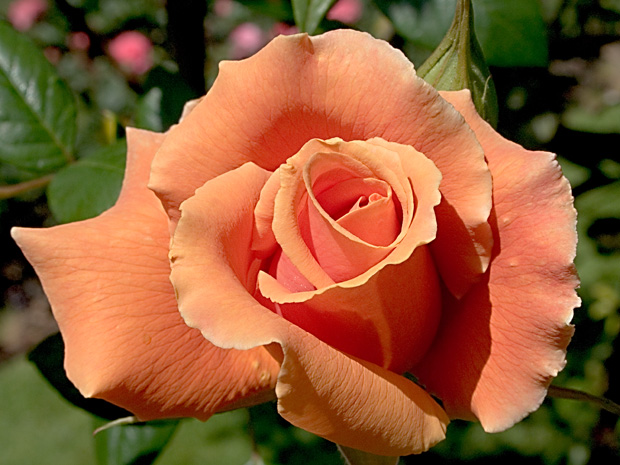Robert Lax’s Love Had a Compass ends with A Greek Journal, a work that in some ways reminds me of Thoreau’s masterful Walden, though it doesn’t seem nearly as “finished,” nearly as polished. At times I almost feel embarrassed reading it, as if I’ve walked in on someone’s private meditations.
The work is often a simple celebration of the people who Lax meets on his island retreat. Other times it breaks out into pure poetry. And at still other times it seems like the ultimate “blog.”
My favorite entries are those, like the following, which examine the very process of journaling:
JULY 22/69
almost as soon as i open the door of the hill-house, i roll the paper
into the machine & bang bang bang
talk somewhat to journal all through the day, knowing that most of
what i say won’t actually go into it: that i’ll write whatever i write once
i start writing. & that no whole subject probably will ever be covered.
some attempt maybe to lay out in dotted lines a range of the spectrum.
spectrum of what? spectrum if only of my worries. & joys? yeah, yeah,
& of my joys.
sometimes, i have conversations with an imaginary guru, naturally
one who lives inside me. he used to be a psychiatrist: at least in the
old days a lot of my conversations were started with, & a lot of my
problems heard out or resolved by, an imaginary viennese who lis-
tened carefully, often accusingly, & showed me with a few apt tech-
nical phrases how far i had erred in my thinking, or behavior, the
viennese fellow has disappeared; comes back if ever for very short
visits; but has been replaced by chuang tzu (sometimes merton, or
sometimes chuang tzu in merton translation) who tells me other wis-
doms: usually the wisdoms of abstinence & avoidance; of retreat,
prayer & preparation, of non-attachment, of “sitting quietly doing
nothing,” of seeking smallness, not greatness, or of seeking nothing
at all.
as i don’t think i really understood the “psychiatrist” half of the time,
i’m not sure i really understand “chuang tzu.” i respect him though,
don’t resent him, as i often did the psychiatrist; feel that he knows i
don’t know but that little by little there’ll be things i can learn. i pic-
ture him with shaved head, a listener (& yet a practical man), a lis-
tener who appreciates, a listener with humor; a storehouse-but very
light storehouse-of wisdom; made like modern electronic ears of
light, light materials, but of great receiving strength.
what he promotes is wisdom, what he promises is grace. zen wisdom,
perhaps; zen grace, but certainly wisdom & grace.
one feels that all philosophies, Zen, & yoga are ways of approaching
wisdom & “enlightenment”-they are ways of approaching an en-
lightened state in which one’s behavior is always or almost always
“spontaneously” right.
to be “enlightened” is not to shine; nor to bring multitudes to the hill
where one sits cross-legged, to listen.
it is rather to know what one is doing (& even, perhaps, to enjoy it).
thus i am glad that they say i am “isichos” & not that they say i am
rich (which i’m not).
they’ve discerned a direction i’ve taken, and one which i hope i shall
keep to.
sometimes i’ve tried to see more than i saw (and have tried to forget
what i’ve seen).
& sometimes i’ve tried to see less than i saw (& have tried to forget
what i’ve seen),
but the world here is whole: whole & large & patient. the longer i stay,
the more patiently i seek, the more, i believe, i shall learn.
here comes the shepherd
& his flock
(out of the shadow
of the rock)
There’s much here to explore, and Lax explores the same themes from different viewpoints in this, too short journal. I guess I’ll have to see if this was the whole journal or merely an excerpt from it.
It seem to me that at its best this is what bloggers do, talk to that internal voice that resides within, perhaps even at times convincing that voice that he, too, must see the world in a new way. Neither the psychiatrist nor chuang tzu has all the answers on how to live our lives successfully.
I suppose this is why I disagree with Shelley and Dave Rogers when they argue that “we’re writing ourselves out of existence. We cease to be people, and instead become characters and plot devices.
We all deceive ourselves, no doubt about that, but only life’s events and self-reflection on those events can ever dispel that deception.
Of course, that’s not to say that those who use their blog for self-promotion rather than self-enlightenment won’t continue to deceive not only their reader but themselves.
Like this:
Like Loading...

